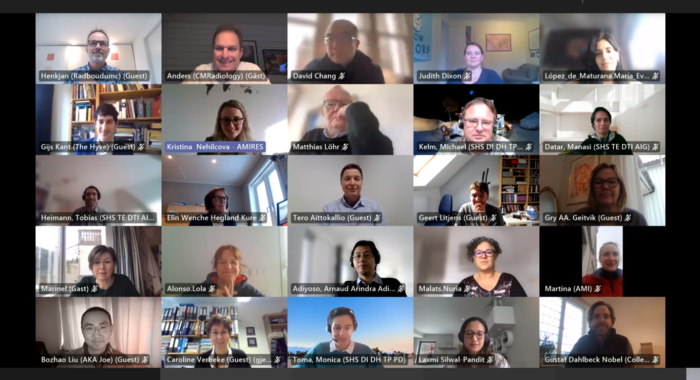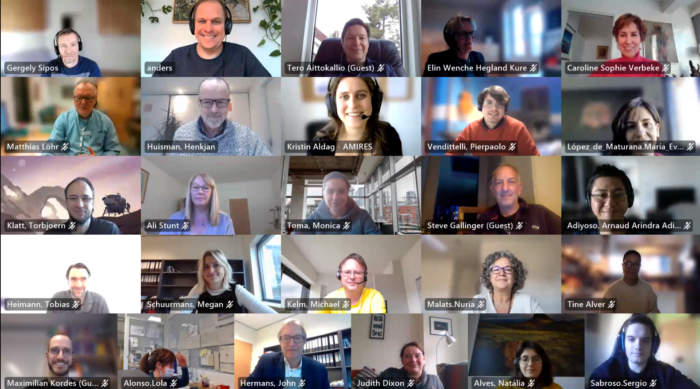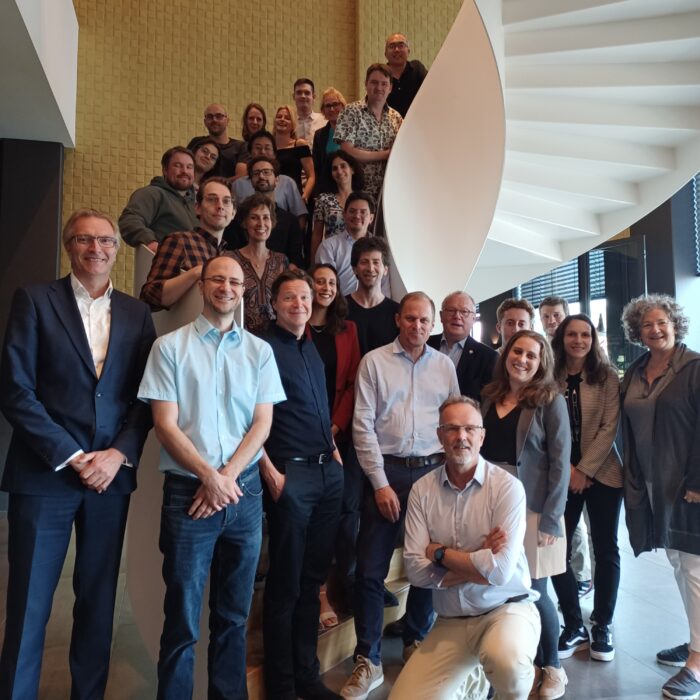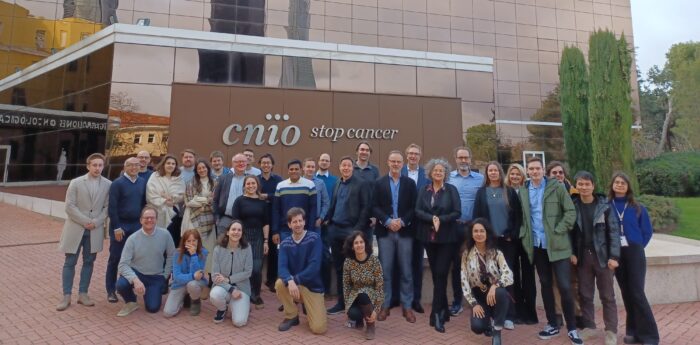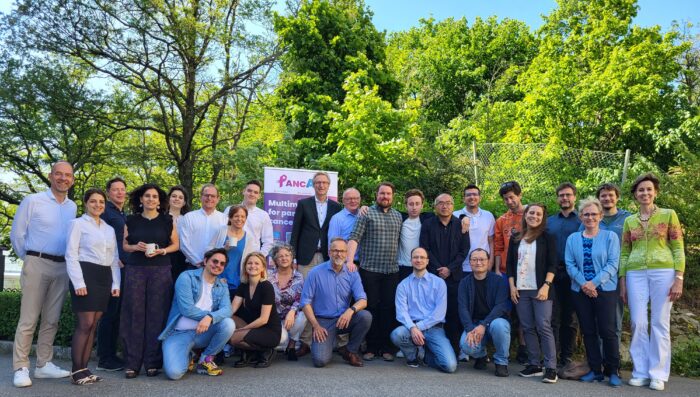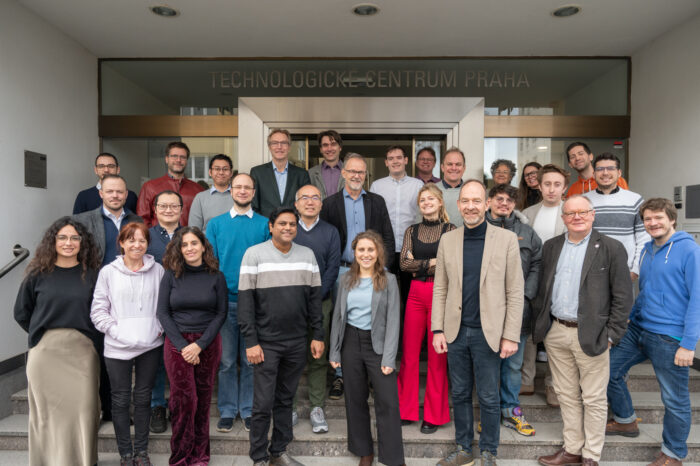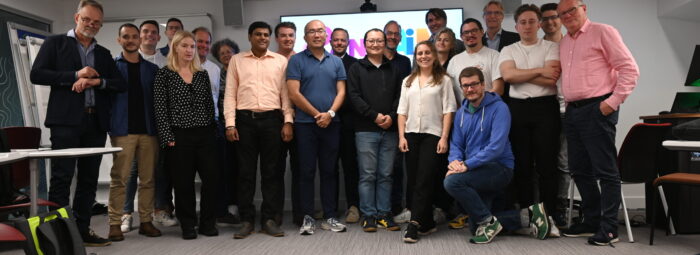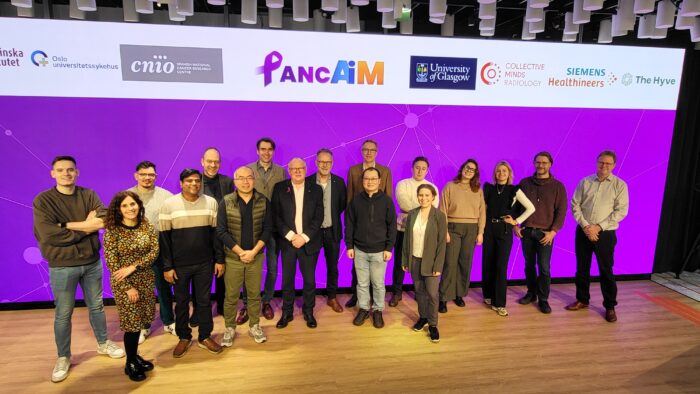Overview
PANCAIM will combine genomics and imaging phenomics using AI to generate breakthrough knowledge to increase understanding of PDAC biology and patient stratification. It will develop trusted impactful AI applications for regular clinical use to help clinical decision-makers to give the right treatment to the right patients at the right time, and at the right cost and improve treatment outcomes of PDAC patients.
Read more
Facts
| Project Acronym: | PANCAIM |
| Project full title: | Pancreatic cancer AI for genomics and personalized Medicine |
| Grant Agreement no.: | 101016851 |
| Start date: | 01/01/2021 |
| End date: | 30/09/2025 |
| Duration in months: | 57 |
| Project funding: | 8,24 M€ EU contribution |
| Funding scheme: | Research and Innovation Action |
| Funding programme: | Horizon 2020 |
| Call identifier: | H2020-SC1-FA-DTS-2020-1 |
| Free keywords: | pancreatic cancer, repositories, personalized medicine, genomic, radiomics, pathomics, clincial data |
Abstract:
Pancreatic cancer is often quickly fatal, and the incidence is rising. These cancer patients face the lowest survival of all cancers in Europe (median survival time 4.6 months). Europe has the highest incidence of pancreatic cancer, with 150 000 new cases in 2018 and 95 000 deaths/year and worldwide, half a million deaths. The trend is that it will soon become the second leading cause of cancer-related death in Western societies. Potential new treatments are emerging, but the main challenge is to select the right drug for an individual patient. Novel immunotherapeutic drugs specifically target tumors with a particular genomic profile. However, pancreas patients with tumors with a similar genotype still show a wide range of disease patterns, i.e., differ in phenotype. Pathology and radiology are already in use to assess phenotype but lack genotyping. Research in genomics, pathomics, and radiomics is scattered and limited and does not yet impact pancreas cancer healthcare. Novel genomics technologies such as next-generation whole-genome sequencing (WGS) and liquid biopsy (ctDNA) are emerging but not yet routinely used in PDAC diagnosis. Pancreas cancer treatment can be improved by an integrated, evidence-based approach.
Objectives
PANCAIM will optimize and integrate genomics and imaging phenomics using artificial intelligence (AI)
read more
PANCAIM will optimize and integrate genomics and imaging phenomics using artificial intelligence (AI). Firstly, to help generate breakthrough knowledge to increase understanding of pancreas cancer biology. Secondly, to develop trusted, impactful AI applications for regular clinical use. The aim is to help clinical decision-makers to give the right treatment to the right patients at the right time. The aimed effect is to improve treatment outcomes of pancreas cancer patients avoiding the current costly trial-and-error use of expensive drugs with strong side-effects. Artificial Intelligence (AI) is currently transforming the field of healthcare. Worldwide interest in AI is high and snowballing, fuelled by the availability of large digital datasets (“big data”). AI is the current most promising technology to integrate and optimize evidence-based decision tools.
Among the main steps of the project, are:
• Develop PANCAIM digital platform integrating genomics and clinical PDAC data
• Develop and use unimodal AI biomarkers for integrative research
• Develop and select most promising AI-assisted clinical products integrating omics and medical imaging data
• Implement and validate clinical products
• Sustain the platform for further research and clinical applications
Impact
PANCAIM will revolutionize the care for patients with PDAC by enabling the clinicians to give the right treatment to the right patients at the right time, and at the right cost.
read more
PANCAIM builds on four key concepts of AI in Healthcare:
- clinical expertise,
- high amounts of carefully documented data,
- AI experts,
- and MedTech companies to collect the data and bring AI to healthcare.
Six top-expert clinical partners provide eleven Pan European repositories of almost 6000 patients open to ongoing accrual. These clinical centers treat more than 2,000 PDAC cases each year. SME Collective Minds builds a trusted, GDPR-compliant platform connecting to clinical centers and hosting the research AI. SME The Hyve builds tooling to connect to worldwide genomic repositories (EOSC Health) and help scientifically explore the data. Three partners provide expertise in AI healthcare across all the clinical modalities involved. Finally, Siemens Healthineers provides their AI expertise and clinical tooling to bring PANCAIM solutions into healthcare. These tools will be clinical validation and ready for swift clinical integration in 3000 health care institutes.
Results
Publicly available deliverables, publications, press releases, downloads & gallery available for a view and download
read more
PANCAIM latest achievements and outputs will be published in this section.
Public deliverables
D6.2 Project website – The document describes the creation of a comprehensive dedicated website for the project as part of the project communication strategy. The website will be actively maintained during the project period.
D6.1 Dissemination and communication strategy – The document outlines the main elements and strategic choices regarding the dissemination and communication activities of the PANCAIM project towards the most important stakeholder groups.
D4.1 Open-source prediction algorithms beta-tested and made available in GitHub – This report details the development, implementation, and beta-testing of multi-modal AI algorithms for predicting pancreatic cancer patient survival. Key features include multi-modal feature selection, model optimization, and hyperparameter tuning. Beta-testing used a public TCGA dataset, and all methods are implemented in R and available on GitHub. The report highlights advancements in creating accessible, reliable survival prediction tools for researchers and clinicians.
D4.2 Stability of the established and new PDAC subtypes quantified – This document reviews established pancreatic ductal adenocarcinoma (PDAC) subtypes and presents a new AI multi-modal deep learning (DL) clustering approach for stratifying PDAC patients. It evaluates current subtyping methods, introducing an unsupervised DL algorithm for patient stratification and a novel methodology for analyzing data modalities. The findings, validated with external data, highlight the clinical relevance of identified clusters. All methods are open-source on GitHub. The report demonstrates advancements in clustering algorithms to aid researchers and clinicians in managing pancreatic cancer.
PRESS RELEASES
First press release: Press release 03/2021
Second press release: Press release 07/2023
DOWNLOADS
An overview of the total samples/files
GALLERY
